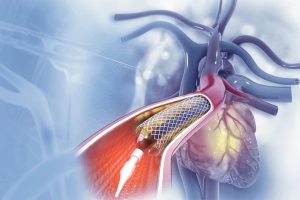Find Reliable Nationwide Truck Accident Attorneys to Maximize Your Compensation
Understanding Truck Accidents and Your Rights
Truck accidents are a serious concern within the realm of transportation and personal safety. With the increasing number of heavy trucks on the road, understanding what constitutes a truck accident and recognizing your legal rights as a victim is paramount. Whether you’re an innocent driver caught in the wrong place at the wrong time, a passenger, or even a pedestrian, you must be aware of the possible repercussions and legal avenues available to you. An informed decision can significantly affect the outcome of your recovery journey, especially when engaging with Nationwide Truck Accident Attorneys who can provide expertise in navigating the complex legal landscape surrounding truck accidents.
What Constitutes a Truck Accident?
A truck accident is defined as any incident involving a commercial truck—rigs, trailers, and heavy vehicles carrying goods—including collisions with other vehicles, pedestrians, or stationary objects. Factors like the size and weight of commercial trucks intensify the impact of these accidents, often resulting in severe injuries or fatalities. Unlike typical car accidents, many truck accidents involve multiple parties, given the potential for complex logistics with trucking companies, drivers, and third-party vendors. Understanding the classification of truck accidents is crucial in establishing liability, which can influence who may be held responsible for damages incurred.
Your Legal Rights as an Accident Victim
If you are involved in a truck accident, knowing your legal rights is essential for seeking proper compensation. You have the right to claim damages for medical expenses, lost wages, property damage, and pain and suffering. However, the legal landscape is rife with complexities. Different states have varying laws regarding negligence and compensation limits. For instance, some states follow a “comparative fault” rule, which can affect how compensation is distributed based on the degree of fault attributed to each party involved in the accident. Thus, consulting an attorney with a deep understanding of local laws will significantly impact the effectiveness of your claim.
Common Causes of Truck Accidents
Understanding the prevalent causes of truck accidents can help you identify potential negligence, thereby strengthening your claim. Factors commonly contributing to truck accidents include:
- Driver Fatigue: Long hours on the road can lead to exhaustion, causing drivers to have slower reaction times and impaired judgment.
- Distracted Driving: Activities such as texting, eating, or adjusting GPS can divert attention from the road.
- Driving Under the Influence: Alcohol or drug impairment remains a critical concern, affecting a driver’s ability to operate a vehicle safely.
- Vehicle Maintenance Issues: Poorly maintained trucks can lead to equipment failure, such as brake malfunctions or tire blowouts.
- Improper Loading: Overloaded trucks can result in instability, causing tipping or loss of control.
By understanding these causes, accident victims can attribute fault more effectively during legal proceedings.
Choosing the Right Nationwide Truck Accident Attorneys
Selecting the right attorney is critical to maximizing your compensation after a truck accident. The complexities involved necessitate expertise in various aspects of personal injury law, especially those unique to truck accidents.
Qualities to Look for in an Attorney
When searching for an attorney, consider the following qualities to ensure you have an ally who can effectively advocate for you:
- Experience and Expertise: Ensure your attorney has a proven track record in handling truck accident cases and understands the specific regulations governing commercial trucking.
- Reputation: Look for reviews, testimonials, and case outcomes to gauge the attorney’s reputation amongst clients and peers.
- Communication Skills: Your attorney should communicate clearly and promptly, helping you understand the legal process and providing updates along the way.
- Commitment to Clients: Choose an attorney who demonstrates a genuine interest in your case and prioritizes your needs over profit.
Importance of Local Expertise
Hiring a nationwide truck accident attorney with local expertise can offer you a significant advantage. Familiarity with local laws, regulations, and judicial tendencies can influence the strategy employed in your case. Local attorneys often have established relationships with local courts and law enforcement agencies, potentially aiding in negotiations and fostering a more favorable outcome for you.
Questions to Ask During Consultations
Before retaining an attorney, it’s vital to ask pertinent questions during the initial consultation to ascertain their suitability. Consider asking:
- What is your experience with truck accident cases?
- How do you approach cases like mine?
- What is your fee structure, and how do you get paid?
- What are the potential outcomes of my case?
- How do you plan to communicate with me throughout the process?
These questions will help you gauge the attorney’s ability to represent you effectively.
Steps to Take After a Truck Accident
Your actions immediately following a truck accident can significantly impact your ability to secure fair compensation. Knowing what steps to take not only helps ensure your safety but also aids in building a strong case.
Immediate Actions for Safety and Documentation
Safety should always be your first concern. If you are physically able, take the following steps:
- Check for injuries: Assess your injuries and the status of anyone else involved in the accident.
- Move to safety: If your vehicle is in a dangerous location, move to a safe area to prevent further accidents.
- Document the scene: Use your smartphone to take photos of the accident scene, including vehicle damage, road conditions, and traffic signs.
- Exchange information: Collect insurance and contact information from other drivers, witnesses, and law enforcement officers.
Contacting the Authorities
It’s crucial to contact law enforcement to report the accident. A police report provides an official account of the incident, which can be critical for your case. Ensure you obtain a copy of this report, as it may contain key details that elucidate fault and contribute to your claim.
Collecting Evidence for Your Case
Beyond photographs and witness statements, gather additional evidence:
- Seek medical attention: Visit a doctor even if you feel fine; some injuries manifest symptoms later.
- Keep records: Document all expenses related to the accident, including medical bills, repair costs, and insurance communications.
- Secure surveillance footage: If the accident occurred near businesses or intersections with cameras, attempt to obtain that footage as it may aid your case.
The more comprehensive your documentation, the stronger your case will be when presenting it to an attorney or court.
Maximizing Your Compensation After a Truck Accident
Securing the compensation you deserve following a truck accident requires a strategic approach. Understanding the various damages you can claim and the complexities involved in determining negligence is essential for maximizing your recovery.
Types of Damages You May Claim
Victims of truck accidents may be entitled to several types of damages, including:
- Medical Expenses: This includes current and future medical bills related to your injuries.
- Lost Wages: Compensation for time missed from work due to recovery.
- Pain and Suffering: Damages awarded for physical pain and emotional distress caused by the accident.
- Property Damage: Costs incurred to repair or replace your vehicle or other property affected in the accident.
- Loss of Consortium: Compensation for the loss of companionship and support to your spouse or partner due to your injuries.
Negligence and Liability in Truck Accidents
In truck accident cases, establishing negligence is crucial. This involves proving that the truck driver or another party failed to exercise reasonable care, causing your injuries. Potentially liable parties in a truck accident may include:
- The truck driver
- The trucking company
- Manufacturers of defective truck parts
- Maintenance providers
- Other drivers on the road
Identifying all liable parties ensures you pursue all avenues for compensation, which can significantly impact the settlement amount or jury verdict.
How Attorneys Will Strengthen Your Claim
A knowledgeable attorney will enhance your claim by utilizing their legal expertise to gather evidence, negotiate with insurance companies, and navigate complex legal procedures. Their skills may lead to a more favorable settlement than a victim could achieve alone. Attorneys can also employ expert witnesses—such as accident reconstruction specialists—to provide additional backing to your case, portraying the incident in a way that substantiates your claims of negligence.
The Process of Filing a Truck Accident Lawsuit
Your journey following a truck accident may culminate in legal action, and understanding the lawsuit process can prepare you for the challenges ahead.
Steps to Preparing Your Case
Preparing a robust truck accident case involves several steps, including:
- Consultation with an Attorney: Share all accident details and significant evidence during initial meetings.
- Negotiating with Insurers: Often, a substantial portion of cases can settle before reaching court through negotiations.
- Filing the Complaint: If initial negotiations don’t yield satisfactory results, you will initiate a lawsuit by filing a complaint that outlines your claims.
- Discovery Phase: Both sides gather evidence, including documents and witness testimonies, to prepare for trial.
What to Expect During Litigation
Litigation can often be a lengthy process. Throughout this phase, expect:
- Pre-trial motions: These may address procedural issues before the trial commences.
- Settlement discussions: Even during litigation, your attorney will likely attempt to negotiate a settlement.
- Trial: If a settlement isn’t reached, your case will proceed to trial, where both sides present their arguments and evidence before a jury or judge.
Settlements vs. Trial: Pros and Cons
While most truck accident cases settle before trial, each approach has its advantages and downsides:
- Settlements: Offers a quicker resolution, reducing legal burdens and uncertainty. However, settlements may result in lower compensation than a favorable jury verdict.
- Trial: Can lead to higher compensation if successful but encompasses long durations, higher costs, and uncertainty about the outcome.
The decision between pursuing a settlement or going to trial should be made in consultation with your attorney, as their insights can help you determine the best course of action based on the specifics of your case.














Post Comment